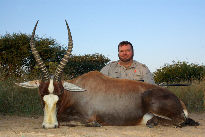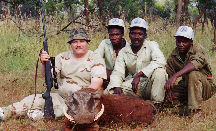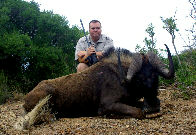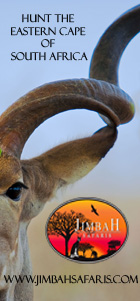Conservation
Ensuring a place for wildlife . . .
Africa is similar to the US when it comes to managing land and resources. People and animals must compete for the same land. The problem for wildlife is that people often win.
In Africa it is often those animals that have a monetary value to the villages and land owners that are afforded the best range land and protection. One group, the Maasai (also spelled Masai) people, have realized this. They used to  slaughter lions and predators that killed their cattle and elephants that trampled crops. Now some have ventured into the safari business and, in the process, they are building up the animal populations and herds they once saw as a either a nuisance or a threat. Placing a monetary value on animals provides the local people with an incentive to protect those animals.
slaughter lions and predators that killed their cattle and elephants that trampled crops. Now some have ventured into the safari business and, in the process, they are building up the animal populations and herds they once saw as a either a nuisance or a threat. Placing a monetary value on animals provides the local people with an incentive to protect those animals.
The safari business infuses much needed revenue and employment opportunities into rural Africa where few other options are available. Infrastructure and services are needed to support visiting hunters.
Hunt camps, many of which tend to be located in isolated areas, require a staff to maintain and operate them. Typically it is the local people who work in the safari business and are glad to have an opportunity to work. And when the continuation of these jobs depends on the health and stability of the area wildlife, people take an active role in protecting the animals from ravages such as poaching.
The hunting safari business provides jobs for trackers, skinners, cooks and other camp staff. Jobs are created for both men and women. The presence of hunters in the camp also provides an outlet for local artisans who offer their handiwork for sale. Nothing goes to waste when an animal is taken. The horns and the hides can be kept by the hunter or allowed to stay in Africa where it will get used. The meat stays in Africa where it is often used in the hunt camp and offered on the menu. It may also be distributed among the camp workers and their families.
Countries that support and manage sport hunting focus their energies and policies on ensuring the best conservation methods are practiced while maximizing the social and economic benefits that the wildlife resource provides.
Money well spent (Support and renewal of the herds)
The revenue generated by hunting finances conservation. Land owners reinvest hunters' money to improve the herds and manage the resources.
Jim paid over a $1,000.00 US for a black wildebeest in 2007. The old bull was no longer living with the herd as he had been deposed by a younger stronger bull (survival of the fittest, you know). He was a loner having outlived his usefulness to the herd. After Jim took him, it was determined that the old guy was slowly starving to death. His teeth were worn to the point that he couldn't eat.

So rather than die a slow death of starvation or consumption by predators, this animal was able to provide income to local trackers and skinners, food (nothing goes to waste), and revenue to support land and herd management. It's a win-win.
Back in the old safari days it seems that hunters went to Africa to get the biggest trophies, and a lot of them. Current best hunting practices aim to keep the biggest and strongest active breeders in the herds and those animals that have already served their purpose and are past the breeding age get to provide one final service to their species. Their trophy fees support the remaining herd.

